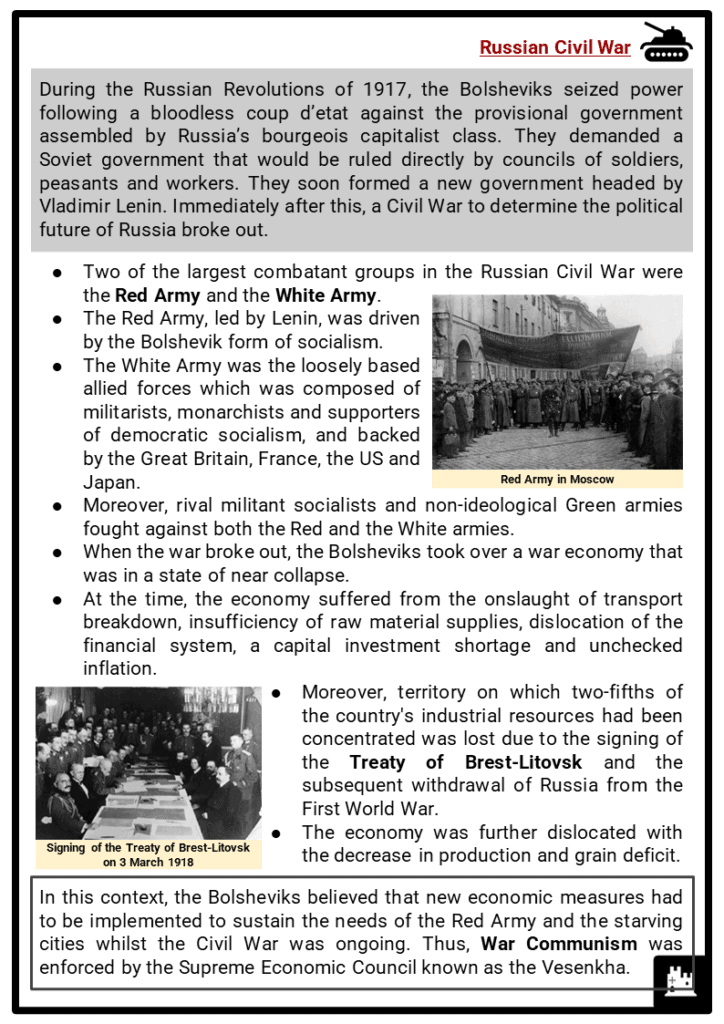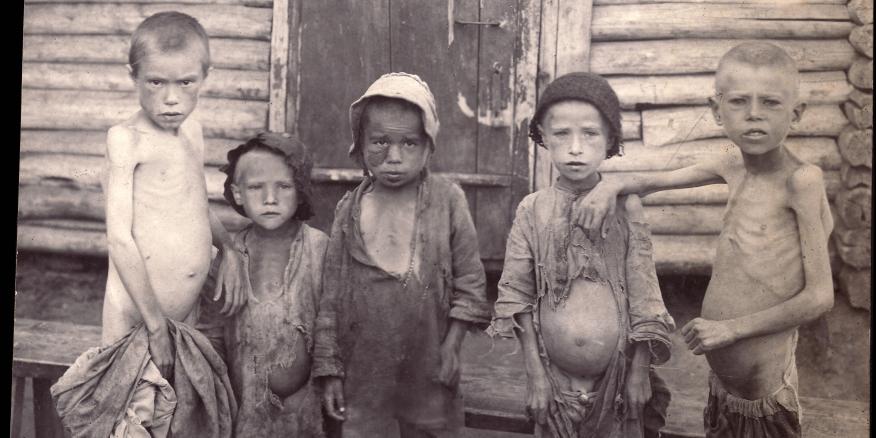Effects Of War Communism On Food Production In Russia
Fall in factory production- the number of goods produced by factories did not increase as a result of war communism. A number of food taxes were introduced in the early Soviet period despite the Decree on Land that immediately followed the October Revolution.

Moskva Moscow Dog Essay Napoleon Dog Dog Attack
The policys chief features were the expropriation of private business and the nationalization of industry throughout Soviet Russia and the forced.

Effects of war communism on food production in russia. Peasants of the Samara region had to surrender 118 kg each of food fodder and seed to. However War Communism caused peasants to hide grain or retreat to subsitence farming as any excess grain they produced was just taken off them. Food shortages did exist before War Communism correct.
Moreover the competition between communism and capitalism as played out in the Cold War was arguably the defining struggle of the 20th century. Karl Marx to Joseph Stalin. Between 1913 and 1917 the number of industrial workers in Russia had increased by 1638 per cent but industrial production had declined by 2271 per cent11 Russia was gripped by an inflationary crisis transport and communications were deteriorating and food supplies to the cities were in decline.
Lenins New Economic Policy. In all areas the economic strength of Russia fell below the 1914 level. A dynasty is when control of a country is passed from family member to family member.
The principle aim was to keep the Red Army supplied during the Civil War was a big problem in World War I and most likely influenced Lenins view on the matter To try to overcome the economic problems caused by the Civil War It lasted from 1918-1921 in 1921 Lenin knew that the policy couldnt carry on and it need a change While Trotsky was organizing the army during the Civil War Lenin was busy organizing food and industrial production. Stalin in 1928 Collectivisation In the late 1920s Russia suffered a food crisis. Communism had failed and that Russia might be expected to revert either through a violent overturn of the Soviet Power or through a gradual evolution to a capitalistic system on the model of the Western world.
Put together with the harsh policies of the Bolsheviks war communism which produced a peasant strike in protest against confiscation the result was a reduction of land cultivation to a bare minimum. Lih When people reflect on the fate of Russia in the twentieth century the y sometimes find the key to an explanation in war communism the name given by th e Bolsheviks after the fact to the economic policies adopted during the civil war of 1918-1921. Also highlights what the NEP entailed Source 1C depicts the production figures in coal cattle pigs grain steel between 1913 to 1929 Source 1D highlights the successes of the NEP.
The shortages caused by War Communism exacerbated by drought and heavy frost caused the requisition of grain to exceed harvest surplus by 30 in some areas. More exactly the policy of War Communism lasted from June 1918 to March 1921. When the civil war between the Reds and the White Russians broke out in 1918 it was fought on the most fertile agricultural areas.
This as you can imagine caused massive food shortages hence the concession to capitalism of the NEP which provided peasants with an incentive to produce. For centuries Russia was relatively isolated from the affairs of Western Europe due to their cold climates and long distances. Source 1A focuses on the failures and effects of War Communism on Russia Source 1B focuses on the reasons why Lenin introduced the NEP.
Food shortages and famine- there were food shortages in towns and urban areas. The Bolsheviks were Communists. Agriculture in the Soviet Union was mostly collectivized with some limited cultivation of private plots.
War in May 1918 an emergency policy of War Communism was adopted Fainsod says that the policy of War Communism was the rule of the besieged fortress This article will show by a study of Lenins writings during the war communism period that. Recognizing its influence is key to understanding both past and current events. Socialism had not begun on a good note and Vladimir Lenin was becoming concerned with the unfortunate state of the economy.
They wanted to take control of industry and food. In 1929 Stalin announced the collectivisation of farms. 19TH CENTURY RUSSIA In the 19th century Russia was a vast multinational empire controlled by the Romanov Dynasty.
It is often viewed as one of the more inefficient sectors of the economy of the Soviet Union. His response to the poor economy he adopted. War Communism was a disaster.
Peasant farmers only grew for themselves as they knew that any extra would be taken by the state. The Civil War caused the Bolsheviks to adopt a more severe economic policy known as War Communism characterized chiefly by the expropriation of private business and industry and the forced requisition of grain and other food products from the peasants. But just as happened under War Communism the peasants hid food or produced less.
Therefore the industrial cities were starved of food despite the introduction of the 4321 ratio. War Communism in the history of the Soviet Union economic policy applied by the Bolsheviks during the period of the Russian Civil War 191820. Socially war communism lead to famines and illegal activities from the proletariats who were not receiving enough food to feed themselves from the peasantry while the NEP allowed the proletariat and the peasantry to recover from this situation and incentivised them to produce grain for the proletariat.
Communism has been one of the most influential economic theories of all times. By the time 1921 came around Russias economy had been maimed by the effects of War Communism. The Red Army needed to be supplied with food and weapons to help it fight the Civil War against the Whites.
The forced collectivization and class war against. In a new book Communisms Shadow Princeton University Press 2017 Joshua Tucker politics professor at New York University suggests that communist thought continues to have a real impact today. To feed starving workers Stalin ordered the seizure of grain from the farmers.
According to this interpretation of events the Russian Revolution was practically a duplication. What it was and how it Changed the Soviet Union. 101493--War Communism-- 1 War Communism and Bolshevik Ideals To Appear in Alternativy Lars T.

Reprint Of A Allied Ww1 Propaganda Poster Ww1 Propaganda Posters American Propaganda Propaganda Posters

The Politics Of Food The National Endowment For The Humanities

War Communism Facts Definition Britannica

Russian Revolution Timeline Activity Russian Revolution Timeline Russian Revolution Teaching History

The Giant Pig Out Of Papier Mache Russia 1930 Weird Old Photos Old Photos Pig
Komentar
Posting Komentar